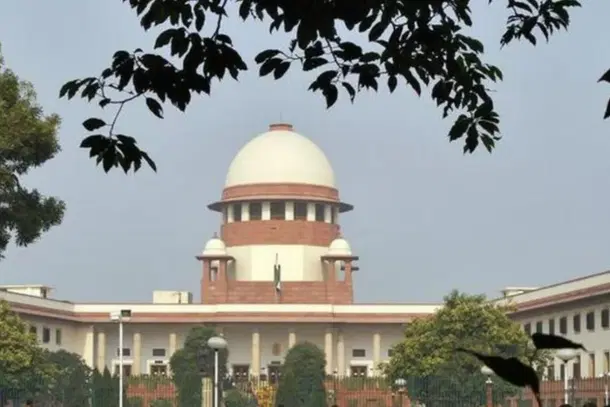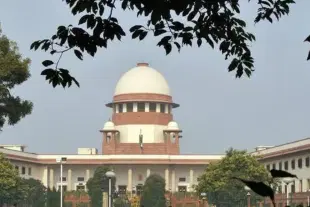News Brief
Paddy Not Native Crop Of Punjab, Should Be Phased Out: Supreme Court In Air Pollution Case
Nayan Dwivedi
Nov 08, 2023, 04:54 PM | Updated 04:54 PM IST
Save & read from anywhere!
Bookmark stories for easy access on any device or the Swarajya app.


In an effort to curb the persistent problem of stubble burning in Punjab and alleviate concerns over declining water tables in the state due to paddy cultivation, the Supreme Court has suggested substitution of paddy with alternative crops.
The SC bench comprising Justice Sanjay Kishan Kaul and Justice Sudhanshu Dhulia emphasised the need for a transition from paddy to alternative crops and stipulated that this shift could only occur when minimum support prices (MSP) are offered for these alternative crops instead of paddy, as reported by Barandbench.
The Court underscored that the cultivation of paddy, which is not native to the region and is not consumed locally, has been at the root of the recurring issue of stubble burning.
The SC bench advocated for MSP incentives to encourage the cultivation of alternative crops, which aligns with the Central Government's objectives to promote traditional crop growth and utilisation.
This came in response to suggestions by Punjab Advocate General Gurminder Singh, who highlighted how the cultivation of paddy was causing a drastic decline in the state's water table.
Singh proposed a phased transition from paddy to other crops and suggested that the central government should consider offering minimum support prices (MSP) for these alternative crops.
The court also took into account the Punjab Preservation of Subsoil Water Act, 2009, which aimed to preserve subsoil water but unintentionally contributed to air pollution due to delayed paddy cutting.
To address this issue, it was suggested that Punjab and Delhi should share 50 per cent of the cost of using machines to manage stubble burning, with the Central government covering the remainder.
The Supreme Court called for prompt action from all stakeholders in implementing these measures and decreed that local Station House Officers, under the supervision of the Chief Secretary and Director General of Police of the respective states, would be responsible for curbing stubble burning incidents in Punjab, Haryana, Rajasthan, Uttar Pradesh, and parts of Delhi.
Nayan Dwivedi is Staff Writer at Swarajya.





